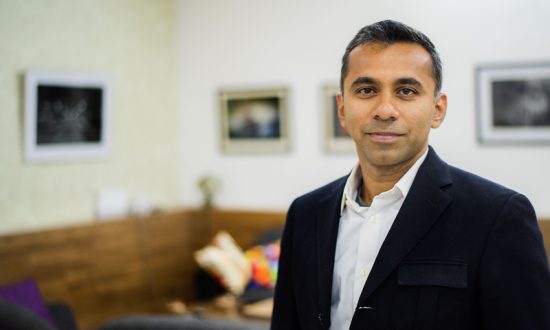Hariraj Vijaykumar holds 24 years track record of developing high-growth businesses and managing global change programs. He specializes in Executive development and Talent transformation practices for large organizations. He is a high-impact outcome-oriented leader in human capital development & organizational change with specialty in crafting and facilitating human capital strategy aligned to the business strategy thus ensuring tight linkage to business performance.
In the olden times of the industrial age, markets and businesses were striving for efficiency and the pace of change was very low. Leadership expectations could be assimilated in the form of stable competencies that were targeted through simple development experiences. But now, in the age of globalisation and technological revolution, leadership expectations are volatile, escalate rapidly and are tempered by overarching global trends. As uncertainty continues to stretch and structure every aspect of our lives and work, it is time for business leaders to take stock of their leadership development practices. The framing, the experience and the underlying mechanisms of leadership development must be reassessed to elevate leadership effectiveness in organisations.
Align leadership development to performance outcomes
As business expectations change continually, leadership development cannot be tethered to developmental outcomes anymore. In a changing business world, constantly disrupted by market forces, only performance expectations serve as a reliable guide. Leadership development must align to performance outcomes instead of developmental outcomes based on competencies. The rationale behind leadership development is achieving performance goals; therefore, the focus of development must be on performance outcomes. When leadership development is performance-based, participant engagement is high and outcomes are powerful.
Integrate leadership development into everyday work
The outbreak of the global pandemic and subsequent remote working models have upended many leadership programs. Organisations should integrate leadership development into everyday work to insulate themselves against the constant changes and disruptions to work. Instead of relying on offsite events or in-person training, leadership development should be embedded into the jobs of team members. As a result, the learning experience can be more effective and flexible as employees juggle changing deadlines and responsibilities. Additionally, these learning experiences should be accessible anytime, anywhere.
Adapt leadership development to individual expectations
In these changing times, the expectations of the individuals who are undergoing development are also changing. In order to adapt to highly consumerised expectations, organisations should provide participants seamless, digital leadership that is convenient, highly engaging and outcome-based. It should not disrupt their workflow but should add to the quality of their work. Similarly, it should be customised to meet the individual needs and expectations. Whether the learning experience needs to be gamified or digitalised, leadership development should not fall short of the expectations of the participants.
Develop meta-skills in leaders
In an ever-changing business environment where leaders are constantly challenged and tested, they must possess meta-skills. Meta-skills are master skills that amplify and trigger other skills. They act as a catalyst, especially when learning and developing new skills. Meta-skills comprise emotional intelligence, self-awareness, learning agility, resilience, creativity and intuition that help leaders deploy their technical and leadership skills. For instance, leaders who can build habits associated with preparation of and reflection oncritical actions can sustain their effectiveness. Leaders with meta-skills can adapt to changing environments and lead their teams through uncertainty.
Measure leadership development performance
Organisations operating in such volatile business conditions cannot reassess and modify their leadership development once and then rest. They should regularly and constantly measure the performance and effectiveness of leadership development. By harnessing the power of insights and analytics, the engagement and effectiveness of participants can be tracked and managed. Measuring leadership development and individual performance will also enable organisations to provide participants with valuable feedback and direct them to the right course of action.
Wrap Up
As organisations adjust to the increasingly unpredictable world of work, they must build reassess their leadership development strategies and methods. Organisations should continuously look for flexible, engaging and effective ways of cultivating leadership skills in their employees. The most innovative leaders and organisations are integrating leadership development into everything they do to create a successful leadership pipeline. This is not the time to hesitate in replacing past practices and swapping old techniques. Instead, organisations must bravely forge a new path ahead in this day and age of uncertainty.


